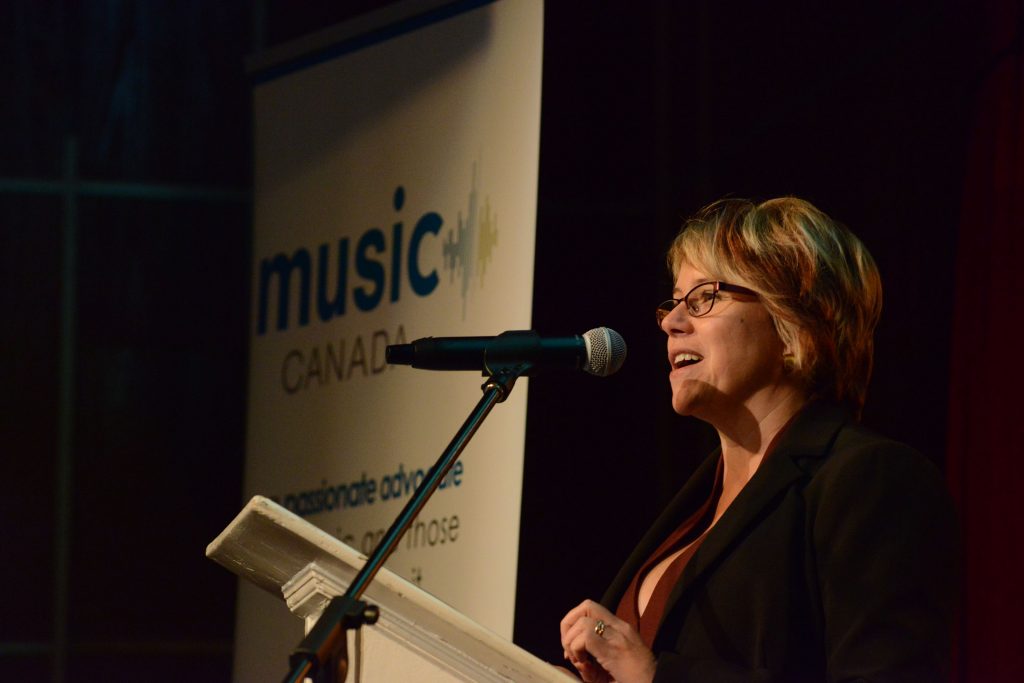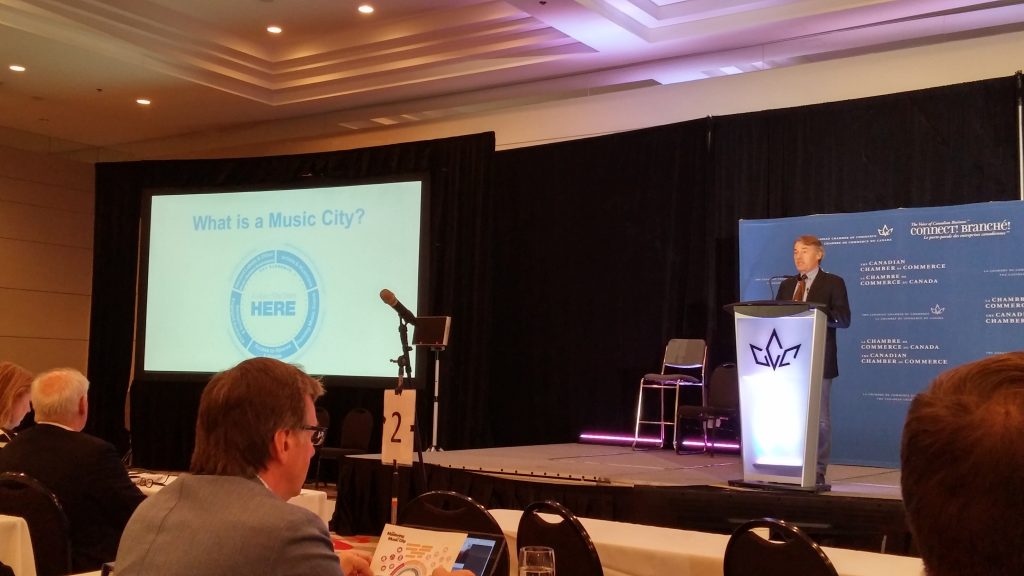 Last week Music Canada launched our JUNOS 2018 #EveryStage campaign, intended to highlight the ways our advocacy supports artists at every stage of their career, with a blog about our aim to secure equitable access to quality music education for all young Canadians.
Last week Music Canada launched our JUNOS 2018 #EveryStage campaign, intended to highlight the ways our advocacy supports artists at every stage of their career, with a blog about our aim to secure equitable access to quality music education for all young Canadians.
We’re proud to return as a Platinum Partner of the 47th annual JUNOS, sponsoring both the Album of the Year category as well as the official kickoff to JUNO weekend, the Welcome Reception.
In the second installment of our four-part series leading up the 2018 JUNO Awards, we’ll explore Music Cities and Music Canada’s efforts to help make Canadian municipalities more music and musician-friendly. A Music City is a community of any size with a vibrant music economy.
Why it’s important
Vibrant and actively promoted local music ecosystems bring a wide array of benefits to both cities and the musicians inhabiting them. Economic growth, job creation, increased spending, greater tax revenues and cultural development are just a few examples.
“Live music is a growth industry in Ottawa. It shapes our identity and who we are as a city. In addition to the cultural benefits, a thriving music industry helps to level the playing field for our homegrown companies who are competing to attract talent from around the world.” – Jim Watson, Mayor of Ottawa
How we advocate
Music Canada’s world-renowned and globe-spanning research has identified several key strategies that cities both large and small can use to grow and strengthen their music economy. We work with municipal governments and regional partners to implement music and musician-friendly policies, establish music offices and advisory boards, as well as promote music tourism, audience development and access to the spaces and places where music is made.
Cities across Canada, including London, Vancouver, Hamilton, Calgary, Toronto, Barrie/Simcoe County, Halifax, Moncton, Ottawa, Windsor-Essex, Guelph and more have implemented or are exploring measures to maximize the impact, growth and support for their local music ecosystems, and Music Canada has been proud to provide support through our research and expertise in the development of these strategies.
Learn more
Our 2015 report The Mastering of a Music City represents a roadmap that communities of all sizes can follow to realize the full potential of their music economy. Truly global in scale, the report is the result of more than forty interviews with music community experts, government officials, and community leaders in more than twenty cities on every continent.
“This should remove barriers to performing and creating music. Ultimately the goal is to create a more sustainable music community where artists and professionals can enjoy successful careers.” – Graham Henderson, President and CEO of Music Canada
Our annual Music Cities Summit at Canadian Music Week brings policymakers, city planners and global music industry representatives together to discuss, learn and collaborate.
Chambers of commerce have an opportunity to carve out a leadership role in leveraging music as a driver of employment and economic growth. In 2016, Music Canada partnered with the Canadian Chamber of Commerce (CCC) to create a Music Cities Toolkit, designed to provide the CCC’s network of over 450 chambers of commerce and boards of trade, in all regions of the country, with a guide to activate the power of music in their city.
“The cities of Kitchener and Waterloo have long recognized that a comprehensive and coordinated approach for live music allows us to not only expand our existing events such as the Kitchener Blues Festival but also attract new business and retain talent. As this document confirms, Music Canada is a tremendous resource for all stakeholders in formulating a local strategy, particularly in bridging municipal, business and cultural sector interests. Through national and international experience they know what works for the benefit of the entire community.” – Ian McLean, President & Chief Executive Officer, Greater Kitchener Waterloo Chamber of Commerce
Live Music Measures Up is the first comprehensive economic impact study of the live music industry in Ontario. It provides critical data and information to help guide decision-making within the sector, in government and other allied stakeholders.
“Measuring Live Music represents an historic, timely and monumental opportunity; one which will enable us to entrench the true value of the live music economy in the minds of our stakeholders, government and audiences alike. It’s inspiring to see the sector organize, work together and build on the momentum we can all feel – here in the Province and around the world – the kind that will help guarantee live music takes its rightful place as one of Ontario’s greatest natural resources.” – Erin Benjamin, Executive Director, Music Canada Live












Music Canada